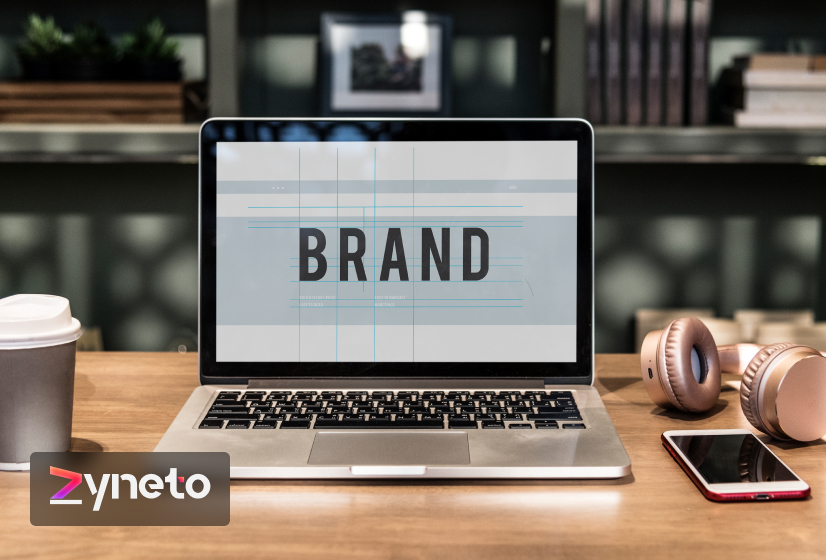Creating a Brand Identity: How a Logo Fits into a Brand Identity


How often have you seen a logo and immediately thought of the brand? For example, you see the Apple logo on a product and instantly connect with the product based on the Brand values and what is expected (like the iOS, the design, the quality, etc.). That is precisely the aim when designing a logo.
A logo is a differentiating element in an increasingly competitive market and efficiently transmits your brand's identity. Here, we will share insights on how a logo can fit into your brand identity.
Brand identity is built from different elements, but the logo is undoubtedly fundamental because it condenses and visually represents a brand's values, history, personality, and vision to expose it to audiences.
When designing a brand logo, it is best to take into account some aspects:
There are different types of logos, and knowing their characteristics will allow you to choose the most appropriate one to represent your company:
Each can be perceived differently, hence the importance of deciding based on your niche, company, and audience characteristics.
Several significant elements should be considered when designing a good logo, whether you are aiming for a 3D logo or a custom business logo. You need to make it memorable to strengthen brand recognition and memory. Your brand logo should focus on timelessness and simplicity so that it transcends and is easy to remember.
Of course, it must be consistent with the brand's values and traits. In addition, appeal to originality to obtain a design that allows you to differentiate yourself and stand out from the competition.
Color and typography are the visual elements of the log; therefore, they directly affect the perception and impact it generates on the target audience.
Typography, for its part, can transmit personality and identity. The idea is to choose a dynamic and attractive font and size.
Regarding color, it is essential to consider the principles of color psychology to select a palette that effectively represents and communicates the brand's values and also awakens the emotions and feelings you want your clients to remember you. As a logo design website with experts, we are ready to help you with this process.
Are you worried about how to design my own logo? The process of creating a logo involves a creative phase and a technical phase. In this sense, handling design principles and professional software is necessary to develop them optimally. In addition, you should consider whether the work should be undertaken from scratch or if it is a redesign.
In general, these are the steps to create a logo:
Remember, an efficient logo fosters customer trust and loyalty.
If the brand is rebranding, has changed its focus, or has changed its target audience, logo redesign can be a way to showcase such changes.
In these cases, the main recommendation is to maintain coherence with the brand identity and avoid getting carried away by passing fashions that can diminish its timelessness. Additionally, you can use the best attributes of the previous logo as a base and always aim for readability.
As we have said, Logos have a special place within the brand strategy because they represent the brand.
Integrating it into the general branding and marketing strategy involves placing it in all the spaces where we want to strengthen the brand's presence and position. This can include the profile and publications on social networks, the website, business cards, product packaging, and any place that communicates the brand values to the target audience.
In short, a logo can optimize the customer experience by inspiring emotions and feelings, facilitating recognition, and serving as an essential element of brand memory. Thus, it can influence the brand's perception, promote customer trust and loyalty, and even favor purchasing.
Having a professional logo is the gateway to countless benefits within a very competitive market: differentiation, recognition, trust, and loyalty, among many others, which allow a brand to position itself in the minds and hearts of its customers.
Whether it is a design or redesign, it should never be taken lightly. The idea is to do it as a timeless image with over a thousand words.
Do you still have doubts about it? Contact us, and we will be happy to assist you.

Vikas Choudhry is a visionary tech entrepreneur revolutionizing Generative AI solutions alongside web development and API integrations. With over 10+ years in software engineering, he drives scalable GenAI applications for e-commerce, fintech, and digital marketing, emphasizing custom AI agents and RAG systems for intelligent automation. An expert in MERN Stack, Python, JavaScript, and SQL, Vikas has led projects that integrate GenAI for advanced data processing, predictive analytics, and personalized content generation. Deeply passionate about AI-driven innovation, he explores emerging trends in multimodal AI, synthetic data creation, and enterprise copilots while mentoring aspiring engineers in cutting-edge AI development. When not building transformative GenAI applications, Vikas networks on LinkedIn and researches emerging tech for business growth. Connect with him for insights on GenAI-powered transformation and startup strategies.
Share your details and we will talk soon.
Be the first to access expert strategies, actionable tips, and cutting-edge trends shaping the digital world. No fluff - just practical insights delivered straight to your inbox.